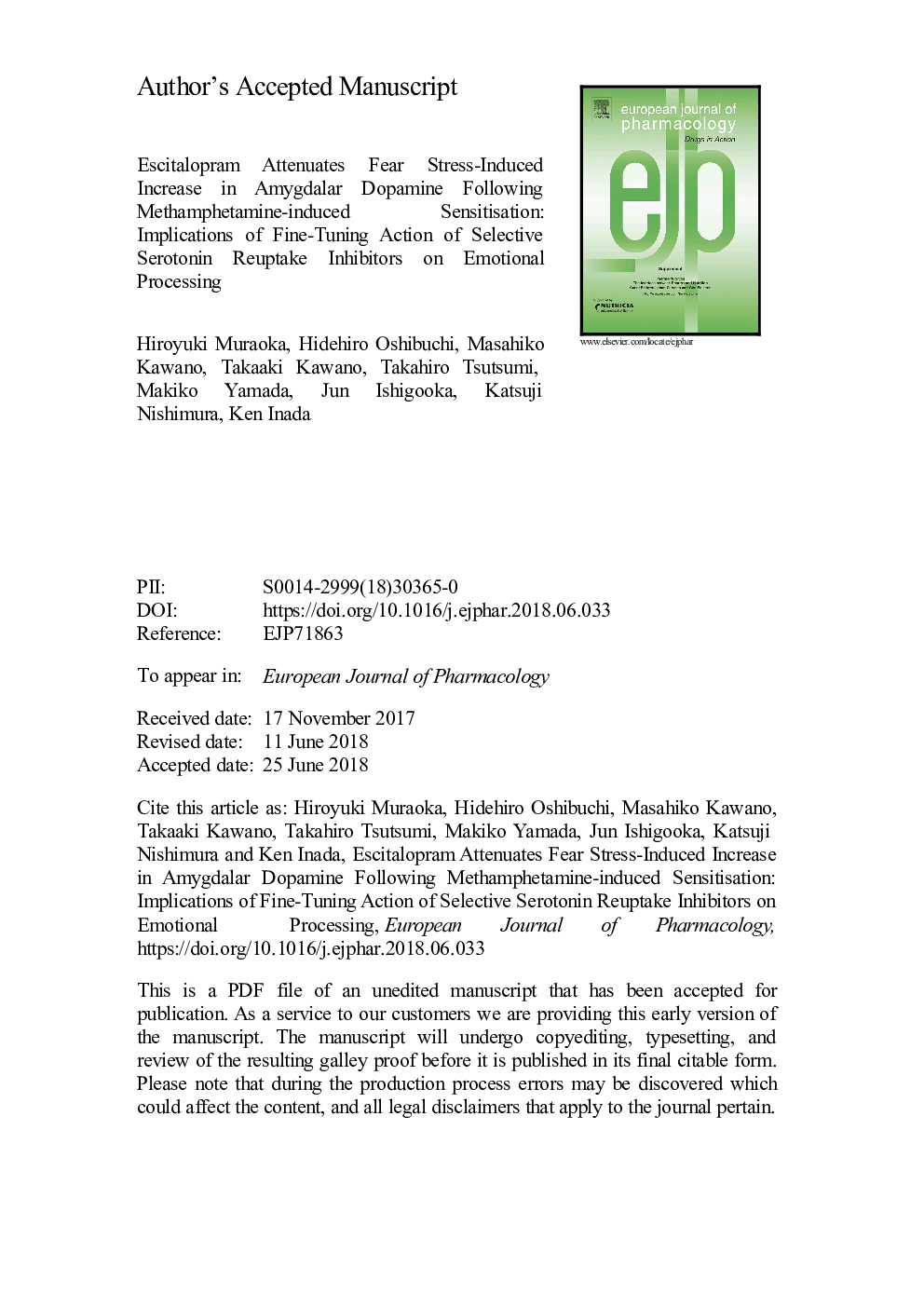| Article ID | Journal | Published Year | Pages | File Type |
|---|---|---|---|---|
| 8528903 | European Journal of Pharmacology | 2018 | 37 Pages |
Abstract
Serotonin reuptake inhibitors modulate the serotonergic pathways of the nervous system and are widely used for treating psychiatric conditions such as anxiety and depression. The dopaminergic system is related to the development of these conditions. Previous studies on methamphetamine-sensitised rats (behavioural models of stress vulnerability) have shown increased release of dopamine in response to conditioned stress in the amygdala. This biochemical abnormality was proposed to underlie the pathophysiology of stress vulnerability. However, the effect of serotonin reuptake inhibitors on dopamine levels and its consequent impact on emotional processing is unclear. Here we examined the acute effect of escitalopram, a highly selective serotonin reuptake inhibitor, on fear-related behaviour, baseline dopamine release and dopamine release in response to conditioned fear stress in the amygdala of model rats. Male Sprague-Dawley rats received 2â¯mg/kg/day, s.c. of methamphetamine for 10 days to sensitise them to the drug, and a fear conditioning paradigm was instituted to model psychological stress. Dopamine changes in the amygdala in response to systemic administration of escitalopram followed by conditioned fear stress were measured using microdialysis and high-performance liquid chromatography. Baseline dopamine release in the amygdala was increased by escitalopram in non-sensitised rats but not in methamphetamine-sensitised rats. Escitalopram attenuated dopamine release in response to the fear-conditioned stimulus in both sensitised and non-sensitised rats. The extent of suppression in methamphetamine-sensitised rats (ââ¯90%) was greater than that in non-sensitised rats (ââ¯48%). These findings suggest that serotonin reuptake inhibitors indirectly stabilise the dopaminergic pathway and modulate emotional processing in the amygdala.
Related Topics
Life Sciences
Neuroscience
Cellular and Molecular Neuroscience
Authors
Hiroyuki Muraoka, Hidehiro Oshibuchi, Masahiko Kawano, Takaaki Kawano, Takahiro Tsutsumi, Makiko Yamada, Jun Ishigooka, Katsuji Nishimura, Ken Inada,
